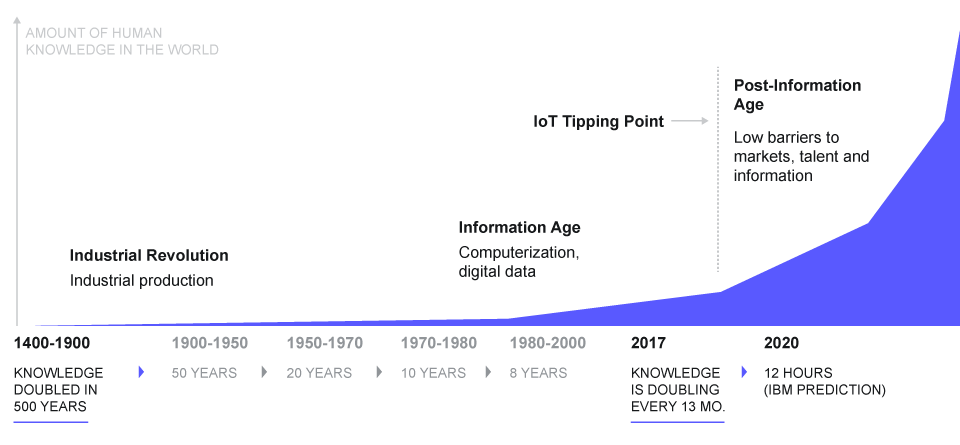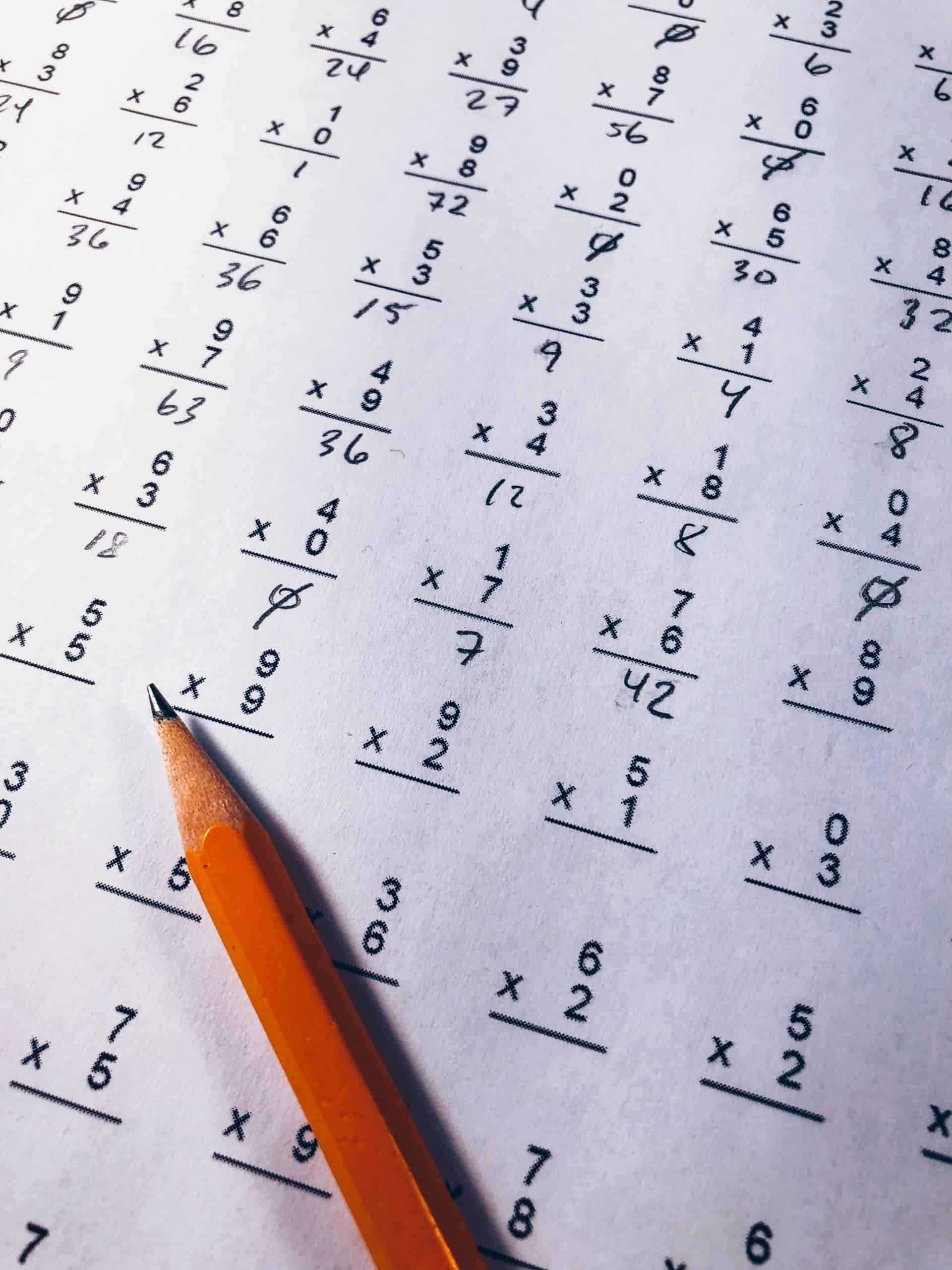Evergreen Skills and Knowledge – What’s Worth Learning?

Many people are in love with the idea of being knowledgeable. Sadly, not many believe that they can acquire enough knowledge. Being able to move through life and overcome all the obstacles effortlessly seems to be reserved mostly for the gifted or unrelatable movie characters.
A big part of the problem is the general inability to acquire considerable amounts of information. However, the other obstacle is deciding what's worth learning. If you don't know where you are headed, you're like a drunk bouncing from one lamp post to another in a twisted version of pinball. The next thing you know is you wake up with a bad headache and a bitter taste of disappointment in your mouth.
There is an easy fix for this - focusing on evergreen knowledge.
Why Should I Focus on Evergreen Skills and Knowledge?
1. It's immediately applicable
The problem with acquiring knowledge randomly is that most of the time if you can't use it, you will lose it. Sure, some bits stay with you throughout your life. Regardless, most of this knowledge will be inevitably lost. So will be your effort and time. I know that many say that spending your time learning is always a good investment.
But is it really?
If I spent 50 hours trying to acquire knowledge and my recall rate, or should I say - return rate, would be 1, 2 or even 5 %, I would be pissed. It would mean that for every 1 hour I spent learning, not more than 3 min were used effectively. That's a very definition of a stupid investment. Sure, you can argue that I have jogged my brain, and tried, and bla bla bla. Still, 5%? Come on!
If I retained that little, I wouldn't even bother learning. I would spend time with my family or binge-watch TV series. Learning is not fun if you can't hold on to any information.
But the evergreen knowledge is different. It's immediately applicable. Every minute you spend acquiring it can give you immense returns on any given day of your life.
2. It makes life easier
The immediate applicability of such knowledge bleeds directly into every area of your life and makes it easier. It allows you to get the most of out of the most ordinary situations and encounters.
Where other people struggle, you see opportunities. It's a real game-changer regarding how you live your life.
3. It gives you a sense of direction
If you have wanted to become a serious learner, but you have never known what to focus on, a list of evergreen skills can give you a clear sense of direction—no more fumbling in the dark. Check one thing off your list and move on to another. In the meantime, watch how much your life changes.
What Knowledge and Skills Can Be Defined as Evergreen?
I think that the most important method to establish what constitutes evergreen knowledge is to ask yourself the following questions:
As a result, you should arrive at the right answers.
Of course, it's worth pointing out that defining what's evergreen is not always perfectly possible. We are all different in some regards. I believe that this distinctiveness should be reflected in the definition of evergreen knowledge.
I like to explain this issue, as contradictory as it might sound to some degree, that evergreen knowledge can be divided into two categories:
- Universally evergreen knowledge
- Personally evergreen knowledge
Universally evergreen knowledge
This category envelopes all the skills and information that are truly necessary to function in any society, country, or profession. Everyone is forced to rely on this knowledge every single day.
Personally evergreen knowledge
This would be the knowledge that's specific to your type of personality, interests or a career path you have chosen. It is the instance where one man's trash is another man's treasure.
Some of the skills I consider evergreen would be treated as an utter waste of time for you. The opposite is true, as well.
Example #1 - Pets
If you're a dog person, knowing a lot about how to take care of your pet would be considered evergreen. That wouldn't be the case for anyone who generally dislikes animals.
Example #2 - Material Engineering
The same would be true for anyone whose area of speciality oscillates around material engineering. In that case, advanced knowledge of chemistry and physics would be a must. Would this kind of knowledge be useful for you and me? Highly unlikely.
Example #3 - Investing
This is an area that applies directly to my life. I am an active trader, and I focus mostly on short-term investments. To be able to do it effectively, I need lots of information regarding the branches that interest me.
Of course, this kind of knowledge would be useless to a non-investor.
News vs information
This is a moment where we should make a distinction between news and information.
Information is a representation of knowledge that feeds your decision-making process. It's almost immediately valuable and useful.
News is just noise - worthless bits of trivia that do nothing to improve any area of your life and feed mostly primitive, emotion-driven parts of your brain.
Unfortunately, I can't help you with deciding what knowledge is personally evergreen for you. This is a one (wo)man job, and you're the person to do it. I would suggest you take your time and compile a list of skills that will be of immense help to you.
In this article, I prefer to focus on universally evergreen skills and why they are worth learning.
A List of Universally Evergreen Skills and Knowledge
For your convenience, press a link to go to the chosen section.
- 1Learning how to learn
- 2Money-related skills
- 3Analytical skills
- 4Nutrition
- 5Medicine and health
- 6Productivity
- 7Creativity
- 8Public speaking
- 9Problem-solving skills
- 10Psychology
- 11(Basic) law
- 12(Basic) economics
- 13(Basic) physics
- 14(Basic) Chemistry
- 15(Basic) mathematics
- 16(Basic) computer science
- 17Language(s)
- 18Playing an instrument
These are the skills that I deem universal for any adult. Not only do they allow you to build a successful and happy life, but also will enable you to overcome any hurdles that you might stumble upon.
Evergreen Skills and Knowledge - Why Are They Necessary?
1. Learning how to learn
Usually, I am first to admit that I am biased in some areas. However, this time, I believe I am stating the obvious.
Knowing how to learn effectively is the single most crucial skill you can master in your life.
Nothing else comes even close. I know that educators from lots of other fields say the same thing about their specialty. They say that mathematics is the king, chemistry is the queen, painting with watercolors is the very essence of life and all that jive.
The thing is that without the knowledge of how to acquire information properly, you will quickly forget all the other information. This way, your life turns into a twisted version of alcohol-infused reality. You learn to wake up the next day and realize that all you have is vague recollections of what you did the night before.
The art of learning should be the very first thing we teach our kids at school. If we did, the standard of living in most countries would rise dramatically. We're talking about flying toilet bowls, and laser sabers here!
Sadly, this world doesn't exist. All we have is an endless game of playing intellectual catch-up and being happy with achieving survival level of professional competence.
Suggested articles:
Suggested books:
2. Money-related skills
Money is an indispensable part of our lives. Yet, not many people take their time to learn how to handle it.
Saving is considered this thing that crotchety old people do. Investing is deemed as a gateway drug to becoming a blood-thirsty, three-piece suit capitalist - not something that honest people do. Budgeting seems like a good idea only when your financial situation is so dire that when you open a toilet bowl, a court executioner pops up humming "Money money money."
Generally, I think that learning more about Business and money is a great way to not only guarantee you financial stability but also to multiple what you already have.
Suggested books:
3. Analytical skills
Analytical skills is an umbrella term for subskills such as:
The amount of knowledge in the world is growing at a dizzying pace.
"Buckminster Fuller estimated that up until 1900 human knowledge doubled approximately every century. By 1945 it was doubling every 25 years, and by 1982 it was doubling every 12-13 months. IBM estimates that in 2020 human knowledge will be doubling every 12 hours." - Modern Working Place




In theory, it should be great news. More knowledge and better access to it means that the quality of our lives and decisions should be increasing as well; except it doesn't.
The most prevalent reactions to this information overload are either:
Analytical skills are the only way out of this madhouse. They allow you to apply a calm, cold, methodical approach to every problem. In the era of widespread misinformation and ignorance, this knowledge seems to be more critical than ever.
Just in the last couple of weeks, we have all had a chance to read the COVID-19 is a hoax created by lizard people who are transmitting via 5g technology. All this to inject you with a bogus vaccine that contains a chip that will travel to your brain to control your bowel movements. What a time to be alive.
Of course, establishing whether something is true or not is a process. It requires suspending your belief and opinions until you learn more about a given subject. Unfortunately, not many people are willing to take their time to do it.
Suggested articles:
Suggested books:
4. Nutrition
Considering that eating is something we do multiple times per day, it seems crazy for me not to study this topic in-depth. Your health is dependent on how good your diet is and how happy or miserable your life will be. It was the main motivation that led me to become a certified nutritionist.
Interestingly enough, becoming knowledgeable in this field requires a mix of other evergreen skills, namely:
If you accept current nutritional recommendations from your government without doing any proper research and knowing how to interpret the data, you are going to have a bad time.
Just the other day, I had a consultation with a woman who religiously followed all the current guidelines—lots of green veggies, whole-weed bread, etc. She also suffered from a hypothyroid and couldn't fix it even with drugs. You can imagine her shock when I explained to her that cruciferous vegetables that she consumed 5 times per day block absorption of iodine and impair the function of the thyroid. The same goes for the infamous gluten. After eliminating those foods from her diet (and some others as well) and adding some supplementation, her thyroid was alive and kicking in about 4 weeks.
5. Medicine and health
Many people treat doctors as an excuse to ignore this field of knowledge. After all, you are not a trained professional, so why would you even bother?
The reasons are plenty. First of all, modern medicine is strictly drug-based. While it's entirely ok in some, especially acute cases, it's subpar or harmful in others.
Secondly, no doctor will follow you around to check whether you or your relatives are ok. Some basic medical knowledge will allow you to spot many health-related problems from miles away. What's more, no doctor will care about the well-being of you and your family as much as you do. It's precisely this emotional engagement that allows people to dig way deeper into potential solutions than many medical professionals.
Last but not least, there are not many good specialists in any area, including medicine. I used to live in this conviction when I was younger that every doctor is a giant, squishy brain with legs attached to it. Sadly, once I started teaching medical professionals how to learn, I quickly realized that they struggle a lot with remembering. Of course, that weighs a lot on potential diagnoses.
Personally, I can't get enough of this domain. So far, I have created 30k + flashcards from this discipline and did governmental certification to become a trichologist and personal trainer, and I know it's just the beginning!
6. Productivity
Productivity is another essential skill everyone should learn. You're going to work most of your life. Being able to get the most out of it is an obvious choice.
Productivity includes subskills, such as:
This skill tied beautifully with knowing how to learn. Once you get a grasp of how to acquire knowledge effectively, increasing your productivity will allow you to work more efficiently and realize projects related to the information you have acquired.
Suggested articles:
Suggested books:
7. Creativity




Photo by Sharon Pittaway on Unsplash
More and more people are getting anxious about the changes our world is going through. AI and the ubiquitous automation threaten to make dozens of professions obsolete in the upcoming decades. And rightly so - it's not fear-mongering. The process is happening as we speak, starting from self-driving cars, warehouse robots, and ending with the pattern-matching AI software. Heck, not that long ago, a Japanese company replaced office workers with artificial intelligence.
However, there is one thing that won't be replaced for a long time, or maybe ever—our boundless creativity and all the emotions that underpin it.
Of course, opinions about whether creativity is something uniquely human are split. However, we can't argue about is that AI programs are typically good at just one thing. Moreover, they need millions of data points to be able to perform this activity.
The same constraints do not limit us. We still need input, but unlike machines, we can make crazy logical and creative leaps between seemingly unrelated subjects.
It's quite a safe bet that unless the processing power of computers increases by hundreds, if not thousands of times or more, the true creativity will remain a hallmark of humanity.
The big advantage is that just learning a couple of basic strategies can make you a way better thinker and problem-solver.
Suggested articles:
Suggested books:
8. Public speaking
Whether you like it or not, public speaking is yet another skill that we cannot escape. Depending on your line of work, you will be forced to step in front of a bunch of people quite often enough.
Learning the basics of public speaking will allow you to feel more confident and make a far better impression than you would otherwise. If you have experienced the soul leaving your body during one of such presentations, you know what I mean.
What's more, it doesn't take much time to acquire this knowledge at a satisfactory level, which makes it even more logical choice for your to-do list.
Suggested books:
9. Problem-solving skills
If there is one thing we are not short of is problems. Every day we face dozens of decisions and dilemmas of different magnitude. Being able to tackle them in a systematic way is a very desired competence.
Problem-solving skills include subskills such as:
What's more, it can be reinforced by many other skills on the list like knowing how to learn, creativity, psychology, and analytical skills.
Suggested books:
10. Psychology
Psychology is the science that studies what influences our minds and behaviors. It's a critical component of our everyday lives. It helps to unveil all the hidden and unconscious mechanisms that drive our lives.
Studying psychological concepts will allow you to both improve relations with your directs surroundings as well as learn how to stop sabotaging ourselves and get out of your own way.
Once again, there is a certain overlap between psychology, creativity, and problem-solving.
Psychology was my first love way before the memory came into the picture. I was brought up in a dysfunctional family. My father was a mean, abusive alcoholic, and that inevitably shaped me as a young kid - and not in a good way. I was terribly aggressive and constantly got into trouble.
When I was about 11 or 12, I entered a bookshop and out of boredom picked up some random psychology book because it sounded smart. My life has never been the same since then. Concept by concept, I could understand where my behavior and actions came from, and I began to fix them. This is the power of psychology - 10/10 would recommend.
The art of persuasion
One of the most readily accessible subbranches of psychology is the art of persuasion. We all have to "sell" ourselves or our ideas in one way or another. You might as well learn how to do it effectively!
It's also worth keeping in mind that the art of persuasion is a double-edged sword. It can also be used against you as a tool of manipulation. Even if you're not interested in learning it to become more convincing yourself, it's worth doing so to become aware when others try to manipulate you.
As the old poker adage goes, if you don't know who the sucker in the room is, it means you are the sucker.
11. (Basic) law
The law doesn't evoke the most pleasant associations. Regardless, our every action is bound by it. Sadly, like many other evergreen skills, it's usually brushed off throughout the education system.
Learning its basics, be it, basic humans rights or tax regulations, will allow you to become a more aware citizen as well as bring you many other benefits, including the financial ones.
12. (Basic) economics
Economics is a field of science that explores how society uses its limited resources to best meet its needs. Both macro- and microeconomics can be applied to many other branches of knowledge, making it a universal tool to understand the economic reality we live in.
You can use it mostly to optimize your financial decisions. It can come quite handy both in investing or choosing the right moment to purchase different goods.
13. Basic physics
Physics is one of a few branched that made the modern world possible. Its applications can be found all around us in every device we use: batteries, cell phones, computers, cars, and constructions of any kind.
Even though it seems abstract at first, it can help you get a better grasp of dozens of everyday phenomena. I find it especially practical when combined with other evergreen skills like nutrition, medicine, and chemistry.
For example, my mom is a cosmetician, and I have always been, somewhat organically, fascinated by this field. One of the cosmetic preparations that are all the rage among ladies is hyaluronic acid.
Very often, it is as expensive as hell. What's more, companies do their best to convince you that it can miraculously regenerate and moisturize any type of skin even if it looks like a 15-year old tire. Sadly, these claims don't hold true. Once you learn a bit about dermatology and combine it with physics (i.e., the concept of permeability), you will realize that most hyaluronic acid preparations are too big to pass through the first layer of skin called stratum corneum. Just like many other preparations, I might add.
You see? A bit of reading will have saved you thousands of dollars.
14. Basic Chemistry
I still remember this memorable saying from school that chemistry "feeds, heals, clothes and defends." It's true.
Chemistry is a tenacious companion of our everyday struggles. It can be found in cosmetics, drugs, clothes, cleaning products and weapons. Knowing just a bit of chemistry can be extremely helpful, especially if you combine it with other evergreen skills.
Personally, I love how medicine and chemistry go hand in hand. For example, once you learn about displacement reactions, you can apply this concept to understand one of the causes of hypothyroid.
It turns out that halogens, i.e., elements like chlorine, bromine, and fluoride, can displace iodine that is responsible for producing your main thyroid hormones. In other words, accidental drink of the tap or swimming pool water or eating your toothpaste might mess you up.
The same goes for drinking too much tea because its leaves, especially young ones, are full of fluoride.
Everything is connected, and chemistry is an integral part of the whole.
15. Basic mathematics




Photo by JESHOOTS.COM on Unsplash
I love mathematics with all my heart. This was one of the mains reasons why I chose Econometrics as my major. That's why it hurts me a lot to see a lot of disdain for mathematics these days. All of a sudden everyone seems convinced that calculators and Excel are our saviors.
It's painfully wrong. I agree that not many people need to know advanced math. However, a lot of basic concepts and a general numerical is necessary.
I would argue that basic statistics is one of the most mat skills one can possess. Without them, it's difficult to interpret any scientific research or even numbers communicated to us by our governments.
16. Basic computer science
There is no denying that we spend almost every day plugged to digital reality. There is little hope that it will ever change.
For that reason, it's definitely worth learning a bit about computers, programming languages and even network infrastructure. It doesn't take much time, but it can certainly improve your understanding of this area of life.
17. Languages
If your native tongue is anything else than English than knowing at least this one language is undoubtedly an evergreen skill. English is the language of knowledge; the modern Latin if you will. If you want to know anything about anything, you need to know it.
However, even if you're an already native speaker, mastering another language should be a must based on the cognitive benefits it delivers.
Nevertheless, I don't think you should overdo it. I believe that knowing more than three foreign languages is rarely practical and worth your time unless you really love this area of knowledge, or you have other good reasons.
Suggested articles:
18. Playing an instrument




Photo by Dominik Vanyi on Unsplash
I know what you're thinking. Playing an instrument is a direct contradiction of my definition of evergreen skills. It's certainly not something one does every day.
I have placed it on my list because just like languages, it's one of the best cognitive boosters in the world. If you care about your or your children's mental well-being, I would consider putting it on your to-do list.
It sure as heck is more effective than investing in some stupid brain-training games or thinking that Sudoku will enlarge your brain enough as to bend space-time.
A couple of benefits of learning how to play an instrument:
"Children exposed to a multi-year program of music tuition involving training in increasingly complex rhythmic, tonal, and practical skills display superior cognitive performance in reading skills compared with their non-musically trained peers, according to a new study." - Science Dailly
"Musical training seems to hone auditory memory skills. Musicians have better auditory working memory (Chan et al., 1998; Jakobson et al., 2008; Parbery-Clark et al., 2009b, 2011a; Strait et al., 2012b, 2013a), potentially accounted for by musicians' increased activation of larger neuronal networks involved in cognitive control and sustained attention than non-musicians when confronted with difficult memory tasks (Gaab and Schlaug, 2003; Pallesen et al., 2010)." - Art and science: how musical training shapes the brain
"Musicians have a larger corpus callosum, the fiber tract underlying most interhemispheric communication, with musicians who started training at an earlier age having a larger corpus callosum compared to musicians who started later (Schlaug et al., 1995; Wan and Schlaug, 2010). Musicians' larger corpus callosum volume may reflect decreased interhemispheric inhibition (Ridding et al., 2000) and more communication between the two hemispheres."
How to Use Many Evergreen Skills in a Meaningful Way
Evergreen skills are easy to activate by their very nature. However, a great way to use them at the same time is to come up with a project.
Most of the projects are characterized by a high degree of complexity and necessitate the use of many different skills. What's more, they are a preferable way for many people to learn. Not everyone can pore over books for months without any specific purpose. Projects, on the other hand, are meaningful and highly engaging.
They can also be a gateway to a better and more successful life - also financially. For example, I did my trichology certification for fun, as a personal project. Would it be difficult to open my practice or team up with someone to open a clinic? I don't think so. Nevertheless, it all started as a fun side project.
Think whether there is something you have always wanted to do or create and start working towards it step by step. Acquire all the necessary evergreen skills on your way there and observe how much easier your project comes. There are truly few things in life that give as much satisfaction as seeing your vision come to life.
Summary - Evergreen Skills and Knowledge
Evergreen skills and knowledge should be a top priority for any ambitious individual. The time you devote to their development is among the best investments in life you can make as they can be used in every single area of your life.
The best part is that the more of them you learn, the more powerful those evergreen skills become. It's a beautiful demonstration of the synergy effect where the sum of parts is way greater than the individual part themselves.
Which of those skills is the most important for you? Let me know in the comments!
Done reading? Time to learn!
Reading articles online is a great way to expand your knowledge. However, the sad thing is that after barely 1 day, we tend to forget most of the things we have read.
I am on the mission to change it. I have created over 43 flashcards that you can download to truly learn information from this article. It’s enough to download ANKI, and you’re good to go. This way, you will be able to speed up your learning in a more impactful way.





